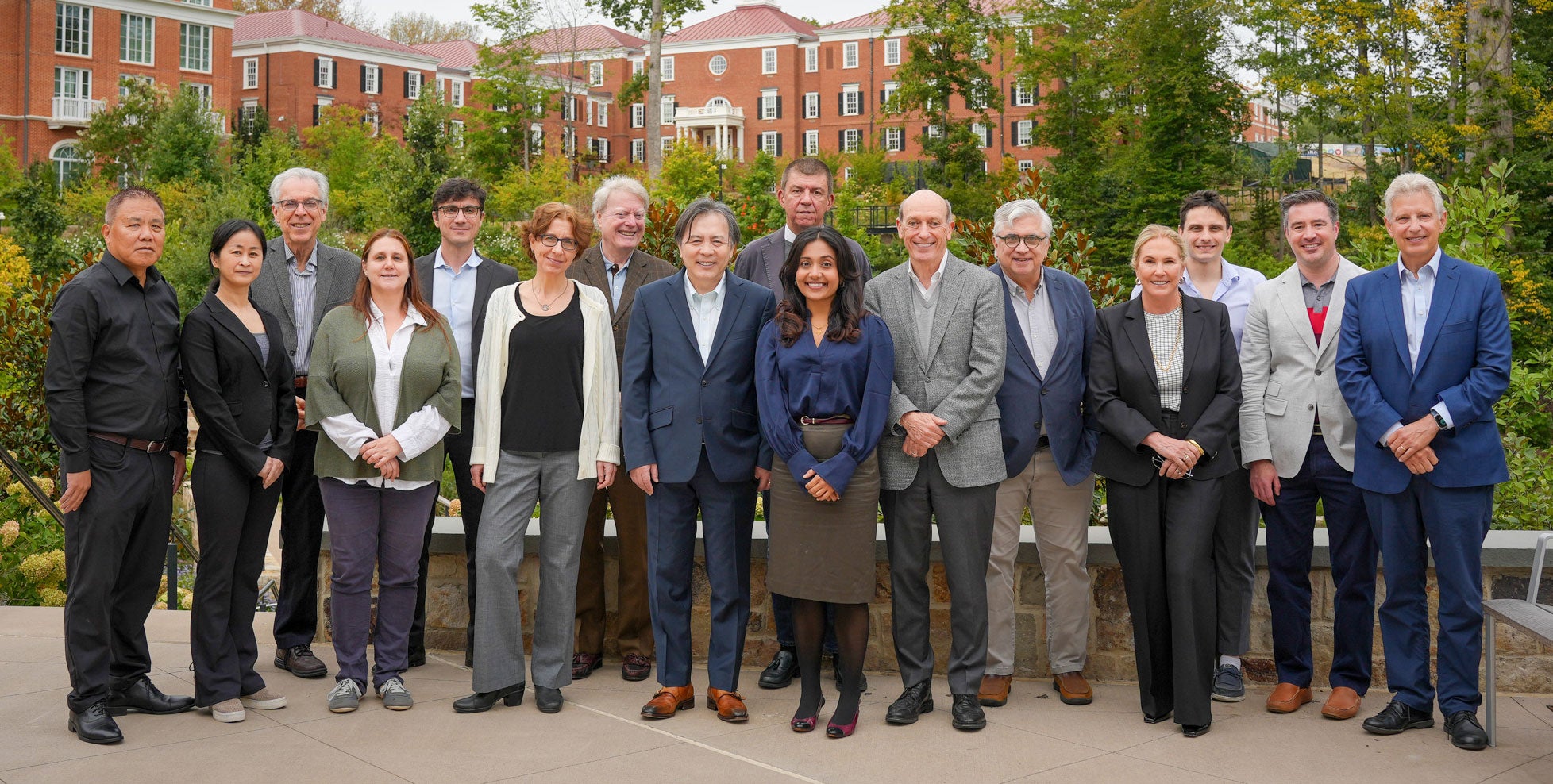
UVA School of Medicine researchers and colleagues from U.S. and Europe gather at the International Mantle Cell Lymphoma Research Symposium and Progress Meeting.
UVA School of Medicine researchers who are leading the pursuit of new therapies for mantle cell lymphoma (MCL) recently gathered on Grounds with colleagues from U.S. and European centers to share progress targeting this rare and typically aggressive form of non-Hodgkin lymphoma.
A B-cell lymphoma, MCL is diagnosed in approximately 4,500 patients annually in the U.S. Until recently, treatment options included intensive chemotherapy and stem-cell transplantation, which are being replaced by better-tolerated and more effective immunotherapy and targeted oral therapies. While most patients achieve remission, virtually all relapse within several years and very few ultimately are cured.
The MCL Symposium and Progress Meeting was co-hosted with Blood Cancer United – formerly the Leukemia and Lymphoma Society – and provided an overview of current-state and future directions in MCL research. The core of the event featured progress reports for a pair of four-year, $3-million Blood Cancer United Synergistic Team Awards (STA), one awarded to European MCL Network investigators and the other to a consortium led by UVA Professor of Pathology Jianguo Tao, MD, PhD. Participants included Blood Cancer United Chief Scientific Officer Lore Gruenbaum, PhD, and Vice President of Research Michael Yaffe, PhD.
Improving MCL Patient Outcomes
In addition to Dr. Tao, the UVA Comprehensive Cancer Center’s team includes Co-Investigator Michael E. Williams, MD, ScM, the Byrd S. Leavell Professor of Medicine, who was among the first scientists to differentiate MCL as a unique lymphoma, as well as Craig Portell, MD, Professor and Section Head for Hematologic Malignancies, Chongzhi Zang, PhD, Associate Professor of Genome Sciences, and Jeffrey Craig, MD, PhD, Associate Professor of Pathology. The School of Medicine’s team works alongside collaborating teams at the University of Pennsylvania Abramson Cancer Center and the University of Texas MD Anderson Cancer Center led by Marco Ruella, MD, and Michael Wang, MD, respectively. This STA Consortium, launched in 2023, has identified MCL drug resistance mechanisms and is developing strategies to improve patient outcomes via novel targeted agents, both alone and in combination with chimeric antigen receptor T-cell (CAR-T) immunotherapies in relapsed MCL. A primary study aim is to improve cure rates in MCL.
UVA’s STA presenters were joined by European MCL Network (EMCLN) colleagues Silvia Bea, PhD, Researcher at Clinic Barcelona and by Marco Ledetto, MD, Associate Professor of Hematology at Italy’s University of Eastern Piedmont. Drs. Bea and Ledetto presented findings on clinical and molecular biomarkers predictive of patient relapse, drawing upon response data and patient samples from the EMCLN’s practice-changing TRIANGLE trial, which established that stem cell transplantation could be replaced while improving outcomes via chemotherapy combined with the targeted Bruton tyrosine kinase inhibitor ibrutinib in younger, previously untreated patients. Their findings will support risk-adapted, individualized treatment of MCL.
The Goal: Curing MCL
Citing the presenters’ work, Dr. Williams said that translational MCL research is “at an exciting inflection point.”
“We’ve had major, practice-changing trials, and a number of highly effective new therapeutics are already available in the clinic with other promising regimens under study in numerous clinical trials,” Dr. Williams said. “Our goal is to move all patients to a deep clinical remission lasting a decade or more, and to reliably cure MCL.”
Blood Cancer United changed its name Aug. 28 – ahead of the annual Blood Cancer Awareness Month in September – to reflect the more than 100 types of blood cancers it seeks to cure, and these patients and families, whom the organization supports.
Filed Under: Research
